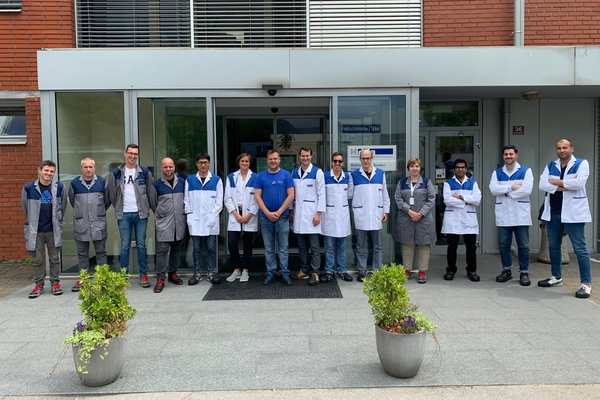We received a visit from international partners from the EU SOPHIA project. In the context of our common project, we test the functioning of exoskeletons and look for ways to best cooperate with collaborative robots in the production process, in order to alleviate the physical exertion of employees.
The researchers and partners of the project from the Twente University from the Netherlands, the Italian Institute of Technology in Genoa and the German Federal Institute for Occupational Safety and Health took measurements at various workplaces during their visit to Hidria. They also finalised the guidelines for the test cobot cell design being produced by the IA CC employees in Koper.
In addition to international researchers from various institutes and universities, the SOPHIA project also involves the Volkswagen Group with its advanced automated factory producing electrified models of ID series vehicles and the Dutch company Hankamp gears, which supplies complex components to the aircraft industry.
Modelling and measuring the muscle activity of our colleagues at workplaces and the issues of occupational safety and health risks opened by the introduction of collaborative robots in production will give Hidria the results to search for solutions for improving working conditions at workplaces and also in the systematic approach of improving ergonomics throughout the corporation.
The measurement results, specific studies and tests of our partner experts in the project will be also the foundation for building the future development policy of our corporation in workplace robotisation.
In the future, workplaces at Hidria will be designed in accordance with guidelines of Industry 4.0. Based on our future development policy we will also start new specific industrial development projects in the future. Jobs with a contemporary design could thus fully come to life at Hidria within the next ten years.

